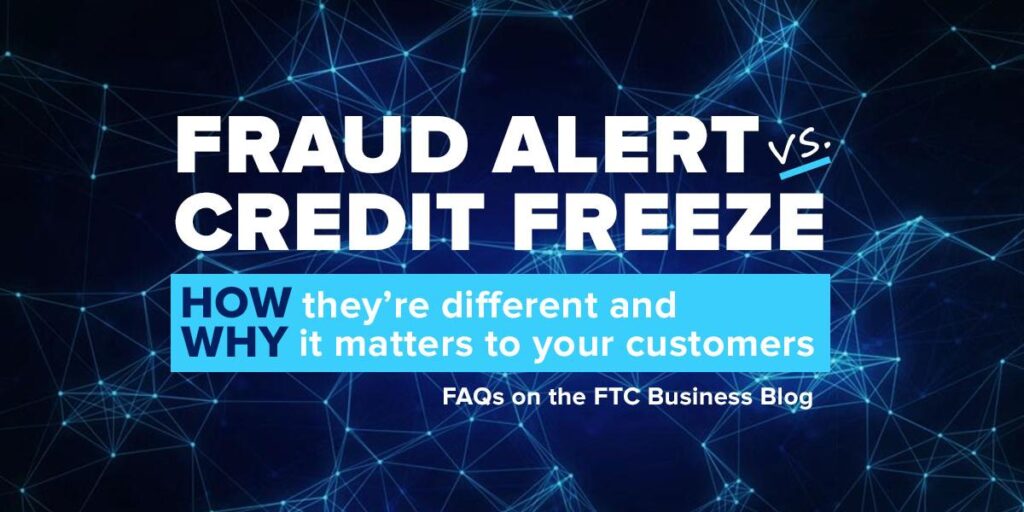Update: As of September 21, 2018, the law states that credit freezes are free for everyone, and alerts now last for one year (instead of 90 days). Read more here.
Consumers are concerned about the security of their personal information, and recent headlines about data breaches have dramatically changed the standards by which such information is measured. As a business executive, your customers and employees are likely to ask you questions. Here are the FTC’s answers on two topics of consumer concern: fraud alerts and credit freezes.
Scam alerts and credit freezes are very useful tools for consumers. People don’t have to be a victim of identity theft to use them, but they should weigh their options based on their personal circumstances. If they’re not sure what’s right for them, here are some points to think about.
What do fraud alerts and credit freezes do? with a Fraud alert, businesses must try to verify a consumer’s identity before extending new credit. Often, this means calling to check if the person was actually at a specific store trying to get credit.with a credit freeze, no one (including consumers) can access a consumer’s credit report to open a new account. If consumers have a credit freeze, they will be given a PIN to use each time they want to freeze, unfreeze and refreeze their account.
How long do fraud alerts and credit freezes last? A Fraud alert Lasts 90 days. If the consumer does not take affirmative steps to update the fraud alert, the alert will automatically expire. Identity theft victims are entitled to an extended fraud alert for seven years. In almost all states, credit freeze Lasts until the consumer temporarily lifts it or permanently removes it. In some states, it expires after seven years.
How much do fraud alerts and credit freezes cost? Fraud alert free. According to state law, credit freeze Fees may be involved. In most states, there is no charge for victims of identity theft. For others, it costs consumers about $5 to $10 each time they freeze or unfreeze their accounts with each credit reporting agency.
How can a consumer place a fraud alert or credit freeze? for one Fraud alert, consumers can contact any of the three major credit reporting agencies by phone or online. Credit reporting agencies are required by law to notify the other two agencies of a consumer’s fraud alert request. Identity theft victims who want an extended fraud alert must mail or upload their identity theft report, which they can create at IdentityTheft.gov.put one credit freeze If in place, consumers would have to contact each of the three credit reporting agencies through the company’s credit freeze portal.
A credit freeze is a powerful tool, but it’s not a panacea. If consumers are preparing to apply for new credit (such as a mortgage, car loan or student loan), they should consider the cost and potential hassle of each unfreeze and refreeze. But for people who don’t need new credit in the short term, a credit freeze may be a good option.
If clients, colleagues or friends have more questions, the FTC offers three publications of interest: Issuing a Fraud Alert, Credit Freeze FAQs, and Extended Fraud Alerts and Credit Freezes. Consider sharing them through your social networks.
